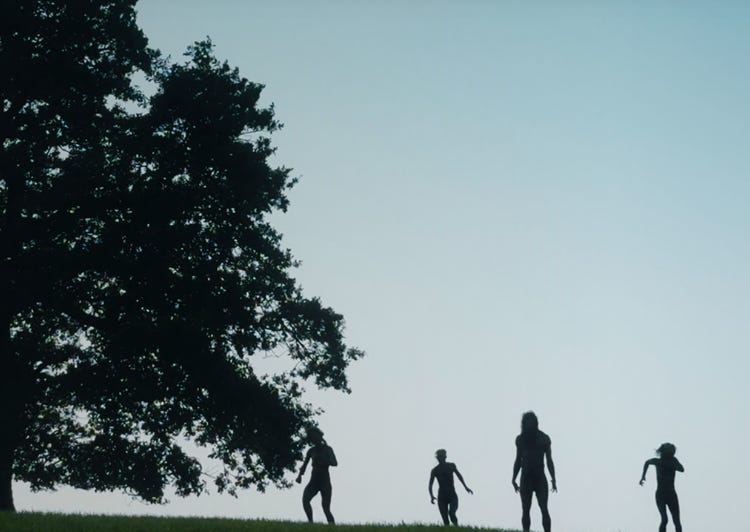Danny Boyle is more than an image maker. He’s an auteur with distinct cinematographic style that’s been described as kinetic, frenetic, and manic. Many know of him from trainspotting where he seemingly did to men of the ‘90s what Kerouac’s On the Road did for men of the beatnik generation. I’m partial to his exploration into sci-fi (Sunshine) and his more earnest work (Slumdog Millionaire), but have also enjoyed his foray into the zombie genre which he redefined with the introduction of the Rage virus and the resulting fast-moving zombies in 28 Days Later.
Both 28 Days and it’s sequel 28 Weeks Later (directed by Juan Carlos Fresnadillo; executive produced by Boyle and writing companion Alex Garland) used genre as a vessel to explore and reflect on current events and themes from societal collapse and the monstrosity of men to imperialism. With Boyle and Garland once again at the helm, 28 years later is more of a big swing meditation on life in the wake of Covid, Brexit, and the global romanticization of nativism and bygone eras than it is a zombie film.
What does it mean to come of age during an apocalypse? While the paths and unique perils may differ from the apocalypse of modern life, the universal loss-of-innocence experience and resulting questions and confusion around morality, the worldview your parents and community instilled in you, and who you are arise all the same.
Here’s how it goes for 12-year-old Spike (Alfie Williams): Go out on your first trip to the mainland to get a kill and prove yourself as a capable defender of society, encounter an evolved Rage zombie known as a slow-low, get chased by a different evolved Rage zombie known as an Alpha, get stranded on the mainland, survive a building collapse, get chased by an Alpha again, witness your dad Jamie (Aaron-Taylor Johnson) lie and mythologize your performance and then cheat on your sick mom Isla (Jodie Comer), embark on a journey to a nearby doctor, survive a butane explosion, come across an unquarantined human whose existence is so different than yours he may as well be an alien, help/witness a zombie give birth to a normal baby, get chased by a different Alpha, successfully reach Dr. Kelson (Ralph Fiennes) who honors death in an insane way, get blow-darted with ketamine and trip balls while receiving a diagnosis for your mom while holding the orphaned zombie child, and then get presented with a freshly burned and boiled skull…
Life, zombie outbreak or not, can be a type of unrelenting war and how people choose to survive or cope with the trauma can range from sadism to compassion. Spike may have survived his first swirl in world’s blender, but how he’s changed and the path he chooses to take going forward is something that will likely be explored in the next two installments of the 28 days franchise.
28 Years Later feels a little bit like a teenager to me, not quite fully formed, but nonetheless an explosive jump out of the gate with images that will stick with me for a long time. If nothing else, Boyle and Garland are still willing to take risks that may not always work or be received well by audiences, but nonetheless challenge and provoke audiences to remember that film is a medium of play and possibility.
Movies this is in conversation with
Not a movie, but the excellent book → tv show Station Eleven
Other movies watched this week
I’ve been very busy trying to get caught up to the current episode of Love Island, so it’s been a movie lite week: Jack Reacher, Heat, and Party Girl.





